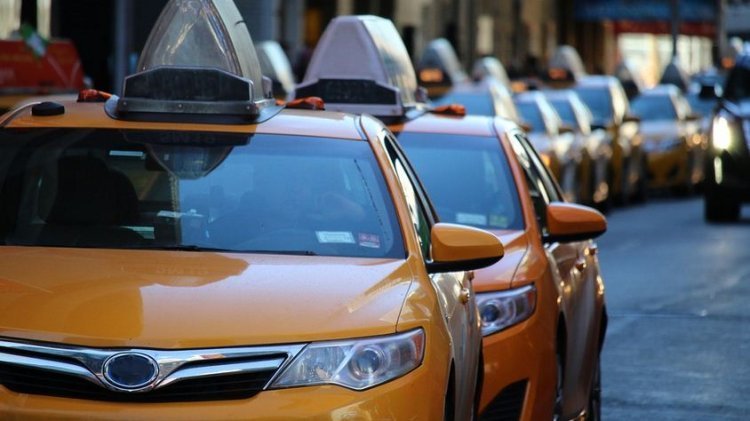Murkomen Reveals 8 Tougher Rules For Companies Running Taxi Apps
Murkomen noted that the transport network companies' regulations will require the digital taxi firms to adhere to...

Transport Cabinet Secretary (CS) Kipchumba Murkomen on Friday, May 5 enforced the Transport Network Companies (Owners, Drivers and Passengers) Regulations, 2022, which is meant to guide operations in the digital taxi-hailing sector.
This is after the regulations were Gazetted on June 22, 2022, and approved by Parliament in February 2023, in what is aimed at protecting drivers from being exploited by the companies they work for.
Murkomen noted that the transport network companies' regulations will require the digital taxi firms to adhere to the maximum commission paid by the driver or owner of the car upon completing a trip.
The rules will also compel the companies to be duly registered with the Data Commissioner and adhere to tax regulations as well as have a physical address in the country.

Transport Cabinet Secretary, Kipchumba Murkomen steps out of a taxi cab during the official launch of YEGO digital taxi operations in Kenya on May 5, 2023. /FACEBOOK.KIPCHUMBA MURKOMEN
Drivers will be required to hold a Public Service Vehicle (PSV) licence before being allowed to operate in the country.
"The Regulations will shield drivers from exploitation by setting the maximum amount of commission paid by the driver or owner of the taxi at 18% per total earnings per trip.
"Additionally, in compliance with the regulations, every company before being licenced to be a registered company, must now be tax compliant, be registered by the Data Commissioner and have a physical office in Kenya, while the driver of the vehicle must hold a PSV licence and subscribe to transport network services," he said.
The CS further declared that it will be a must for the companies to follow rules on subscription, activation and deactivation of service to prevent the unlawful termination of drivers' services.
He spoke at the official launch of YEGO digital taxi operations in Kenya, where he expressed his satisfaction with YEGO’s driver-friendly policies which are in line with Kenya Kwanza’s bottom-up economic model of uplifting hustlers in the country.
YEGO’s approach will see drivers go home with 88 per cent of their earnings (as the company takes 12 oer cent), to be made 60 seconds after a trip ends.
"The company also caters for their drivers’ NHIF costs and has insured them against personal accidents. Further, 10 per cent of the annual dividend from the drivers goes to YEGO Sacco as an effort to secure their future, with their savings enabling them to get access to car financing.
"I congratulated YEGO CEO Karanvir Singh and his team on the auspicious launch and wished them all the best in their operations in Kenya," he added.
YEGO Global has been operating in Rwanda since 2016 when it became the first licensee in Rwanda to provide a smart mobility solution using Intelligent Connected Fare Meters (ICFM). YEGO has a 100 per cent market share of the taxicab and boda boda market in Kigali and its expansion was to cover the entire country.
Being the sole licensee in Rwanda, YEGO is all set to drive secure and smart digitization for the boda and taxicab industry. YEGO’s operation in Rwanda has been recognized globally for driving inclusion, innovation and upliftment of women and youth, by reputable organizations such as Fast Company, Africacom, and AppsAfrica Innovation Awards.
On October 31, 2022, YEGO was among four taxi-hailing apps allowed by the National Transport and Safety Authority (NTSA) to operate in Kenya, alongside Uber, Bolt and Little Cabs.







